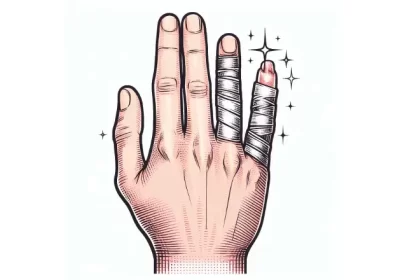Heart disease is a serious health condition that affects millions of people worldwide. A heart attack, also known as a myocardial infarction, is a common and potentially deadly outcome of heart disease. It occurs when the heart muscle is damaged or does not receive enough oxygen. This can happen due to blockages in the arteries that carry purified blood away from the heart to different parts of the body, or the formation of blood clots.
It is not always easy to differentiate between a heart attack and heartburn, but the common signs of a heart attack include a tightness, pain, or discomfort in the chest, sweating, nausea, and vomiting, accompanied by intense pressure in the chest. A radiating and intense pain in the chest that extends from the chest to the left arm and shortness of breath for more than a few minutes are also common signs. If you experience any of these symptoms, it is essential to consult your doctor or go to the emergency room immediately.
If you suspect you are having a heart attack, you must call for a cardiac care ambulance and put under your tongue a sorbitrate or chew an aspirin, unless you are allergic to aspirin. At the hospital, care will include rapid thrombolysis, cardiac catheterization, and angioplasty, as well as the administration of clot-busting medications intravenously.
Heart disease risk factors include smoking, diabetes, high levels of cholesterol, hypertension, family history of heart diseases, atherosclerosis, lack of exercise, obesity, and fast foods. To reduce the risk of a heart attack, there are several lifestyle changes you can make.
The first and most important step is to quit smoking. Smoking is a major risk factor for heart disease and increases your risk of heart attack by two to four times. Eating a healthy diet is also essential, including avoiding fatty foods, excess salt, and red meats. Instead, choose foods that are rich in antioxidants, such as fruits, vegetables, whole grains, and lean proteins.
Controlling high blood pressure and diabetes is also crucial in reducing the risk of heart disease. Regular exercise, at least 30 minutes a day, is also recommended, with walking being one of the most beneficial activities. Preventing obesity by maintaining a healthy weight is also vital. Living a healthy lifestyle overall, including regular meditation and relaxation exercises, is also beneficial.
It is also recommended to undergo periodic cardiac evaluations to check your heart health, even if you have no symptoms. This can help catch any potential issues early and prevent serious complications.
According to the American Heart Association, approximately 58.8 million people in the US suffer from heart diseases, and about 950,000 Americans die of heart ailments each year. However, heart diseases and death from them can be prevented by maintaining good health.
To achieve good health and wellbeing, find a balance in life between work and other activities. Instead of watching sports on television, play sports outside. By being well-informed and caring about your health, you can take the necessary steps to prevent heart disease and live a long and fulfilling life.
Prevention is better than cure. By making simple lifestyle changes and taking care of your heart, you can reduce the risk of heart disease and avoid a heart attack. For more information and resources on heart disease prevention, check out the University of Maryland Heart Center for Preventive Cardiology, the American Heart Association, or the National Center for Chronic Disease Prevention and Health Promotion.





